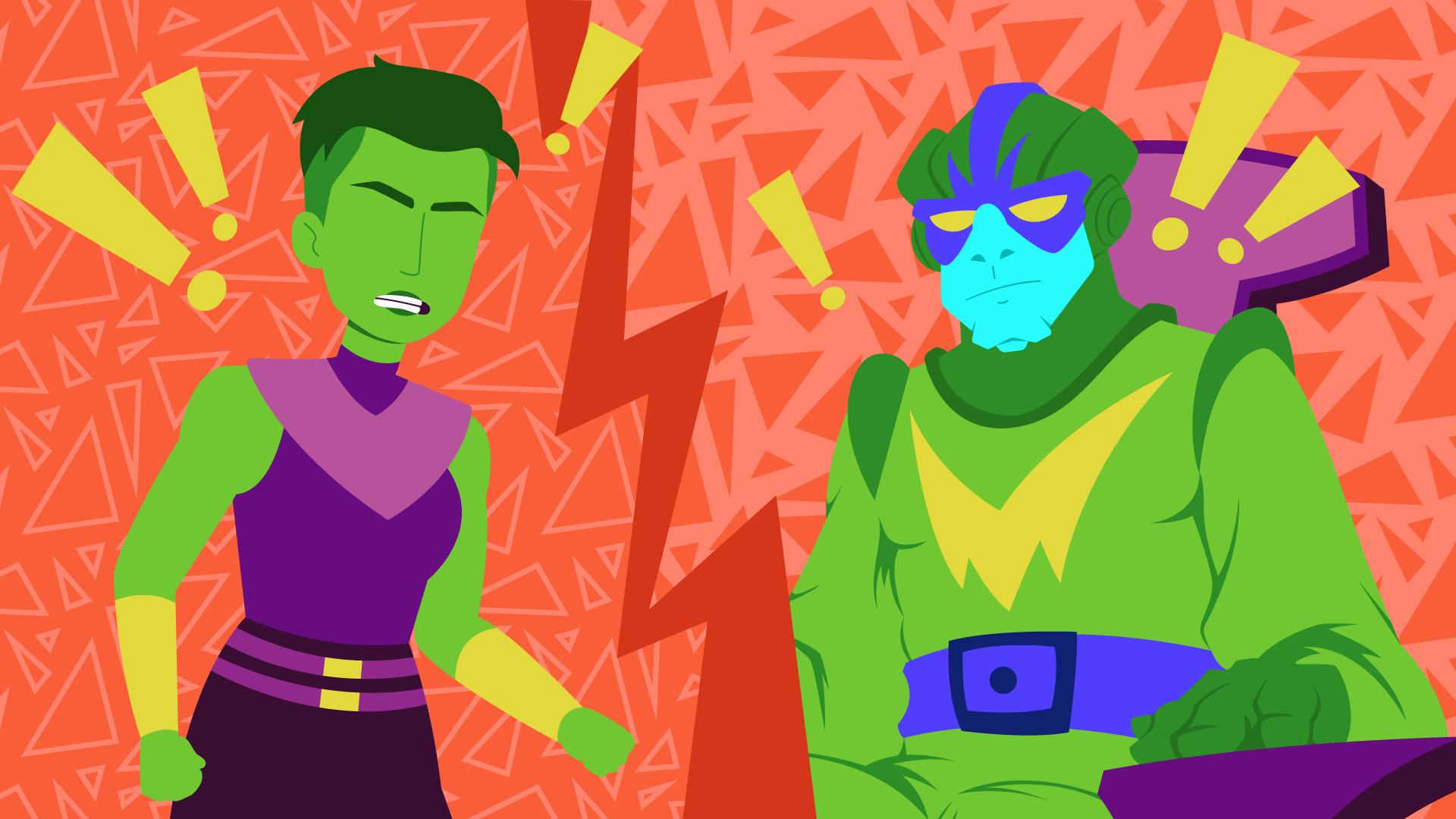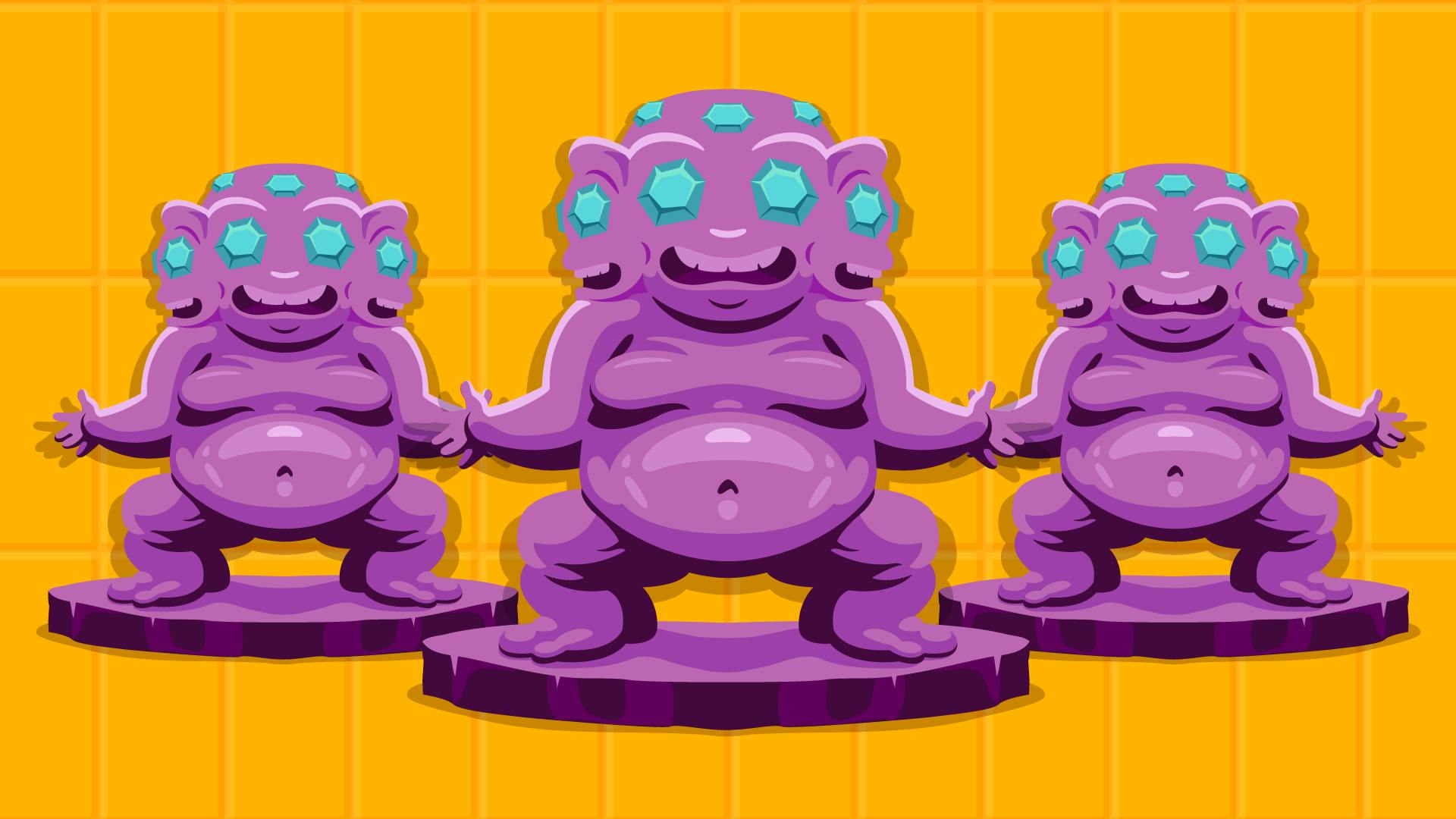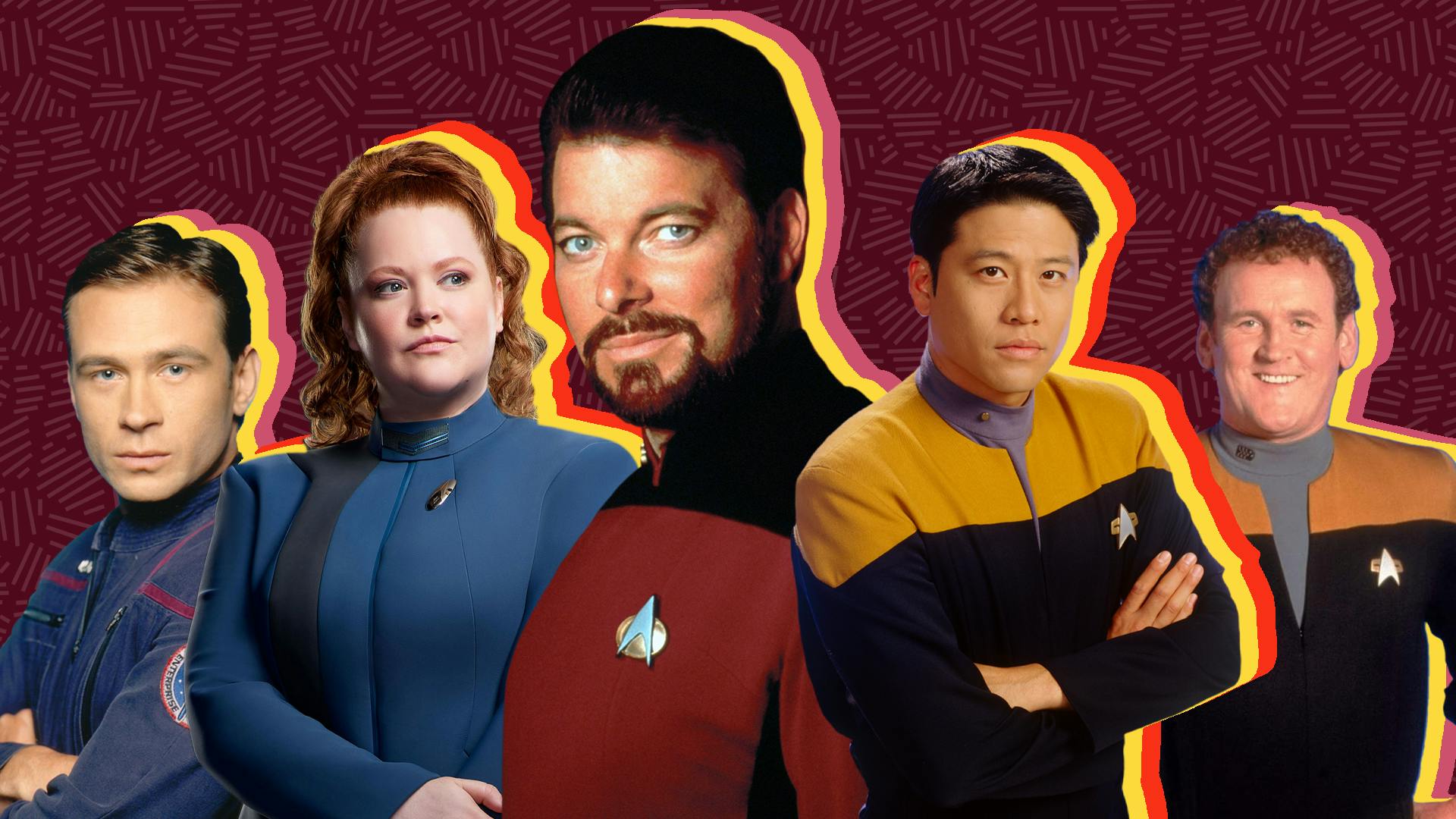Published Mar 18, 2024
Remain Klingon: The Federation's Relationship with Klingons
tlhIngan maH. taHjaj.
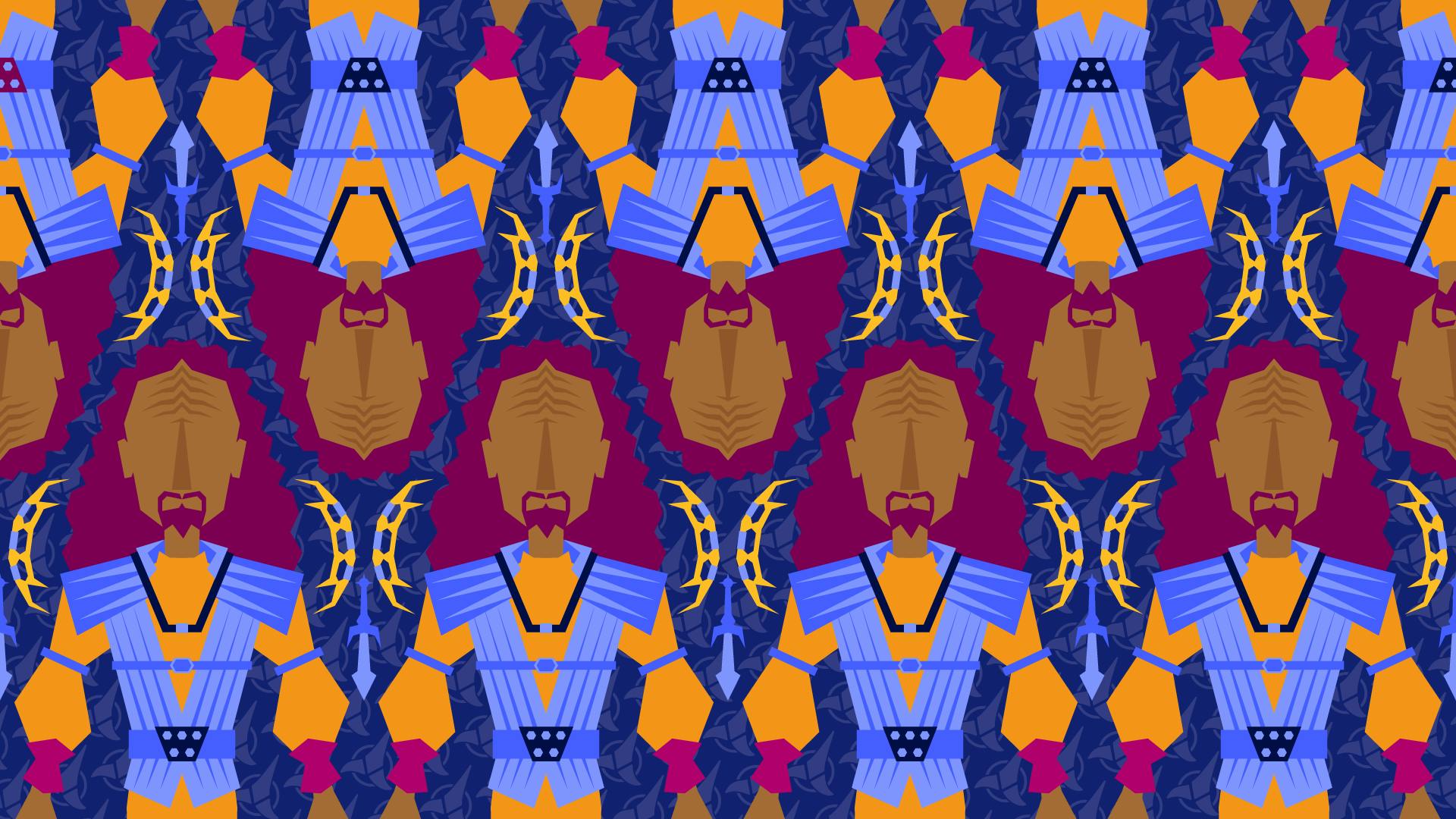
StarTrek.com
The Federation's relationship with the Klingon Empire shifted dramatically from Star Trek: Discovery's war to the Star Trek: The Next Generation era, which included Star Trek: Deep Space Nine's tumultuous storylines involving the species.
However, numerous parallels exist between key Klingon characters from Discovery's first season and the species’ leading figures from the 24th Century. The two sets of Klingons can be subdivided into four categories that offer astounding connections between the time periods.
The Messiahs: T'Kuvma & Kahless (Clone)
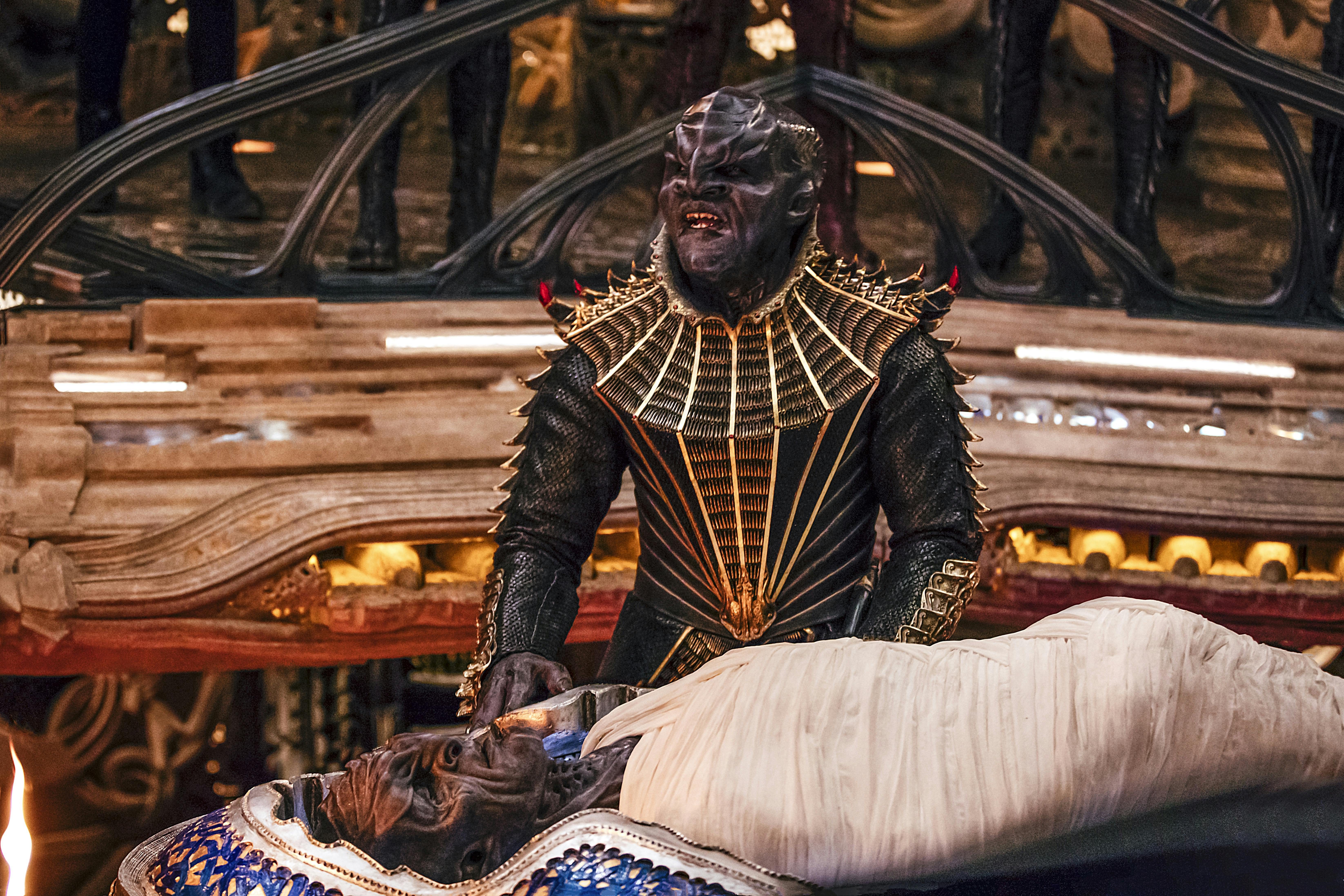
"The Vulcan Hello"
StarTrek.com
T'Kuvma invoked the original Kahless' successful unification of the Empire as his rallying cry and went so far as to claim that he led as a reborn Kahless. Unsurprisingly, the Kahless clone revealed on Boreth also initially believed himself to be a reincarnated Kahless.
Societal hierarchies mattered little to these prophets. T'Kuvma bonded with Voq and appointed him Torchbearer. Kahless' clone admired Worf and wanted the Starfleet officer to stand at his side during his quest. While the two maintained vastly different attitudes about the Federation, both messiahs sought an honorable empire acting as a single entity.
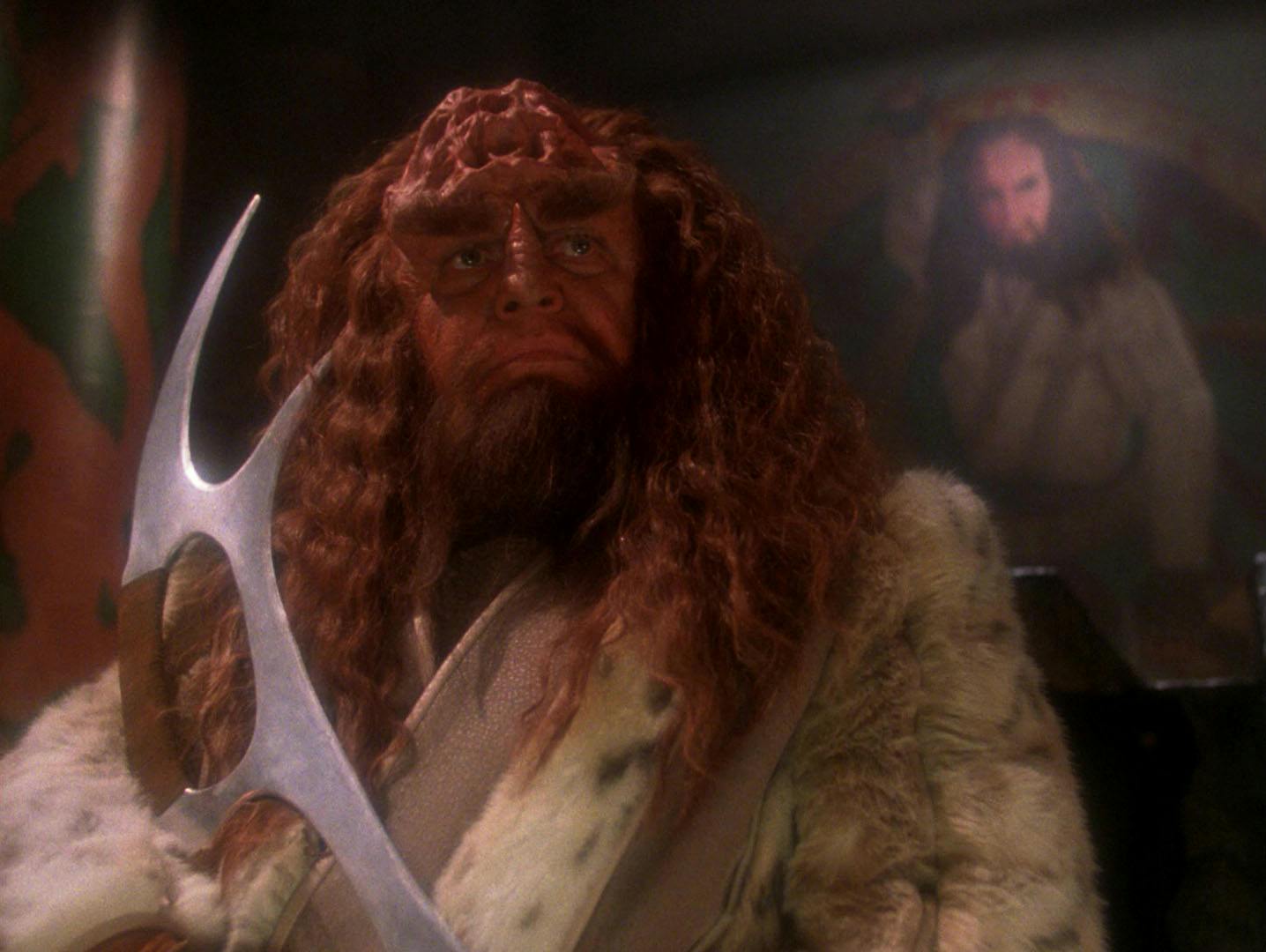
"Rightful Heir"
StarTrek.com
Neither Klingon proved exempt from fallibility, as even L'Rell admitted to Admiral Cornwell that T'Kuvma's opinion that humans lacked courage was incorrect. Similarly, the cloning procedure left gaps in the new Kahless' memory and proved unable to perfectly recreate the original Kahless.
In the end, the two behaved as symbols for their people rather than genuine leaders. T'Kuvma perished in the Federation-Klingon War's first battle, but his mission lived on in Voq and L'Rell. Kahless' clone became a figurehead as Emperor, with Gowron holding the true power in the government.
The Outcast Believers: Voq & Worf
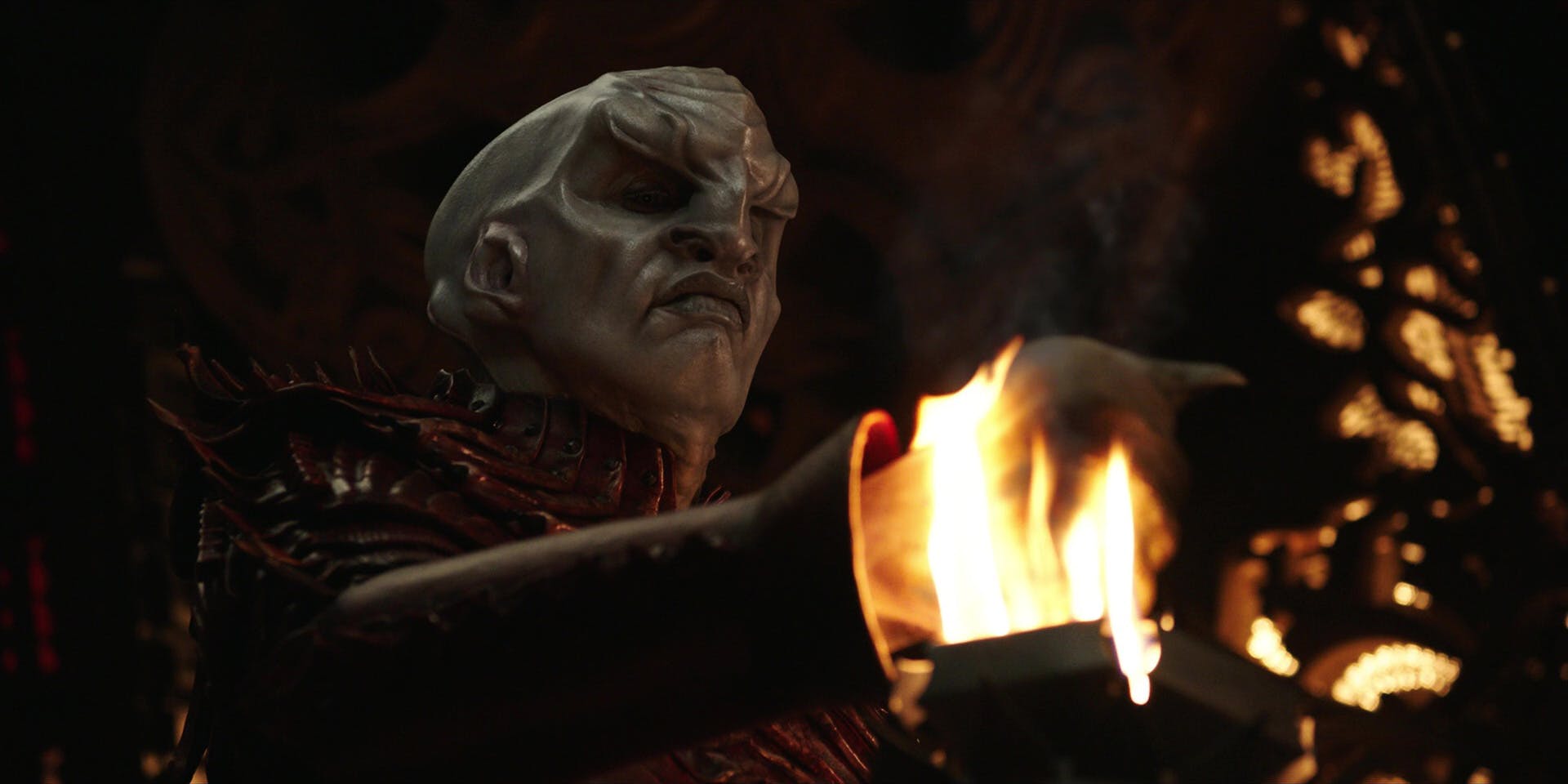
"The Vulcan Hello"
StarTrek.com
Voq's skin color and Worf's human upbringing made them outsiders to Klingon society, yet their belief in Kahless and their culture's traditions continued to thrive.
Voq described himself as a "son of none," whereas Worf found himself without a house after he refused to back Gowron's war against Cardassia and consented to altering his brother Kurn's memories and identity. Their interpretations of duty differed, but the outcasts valued the concepts as facets vital to their personas.
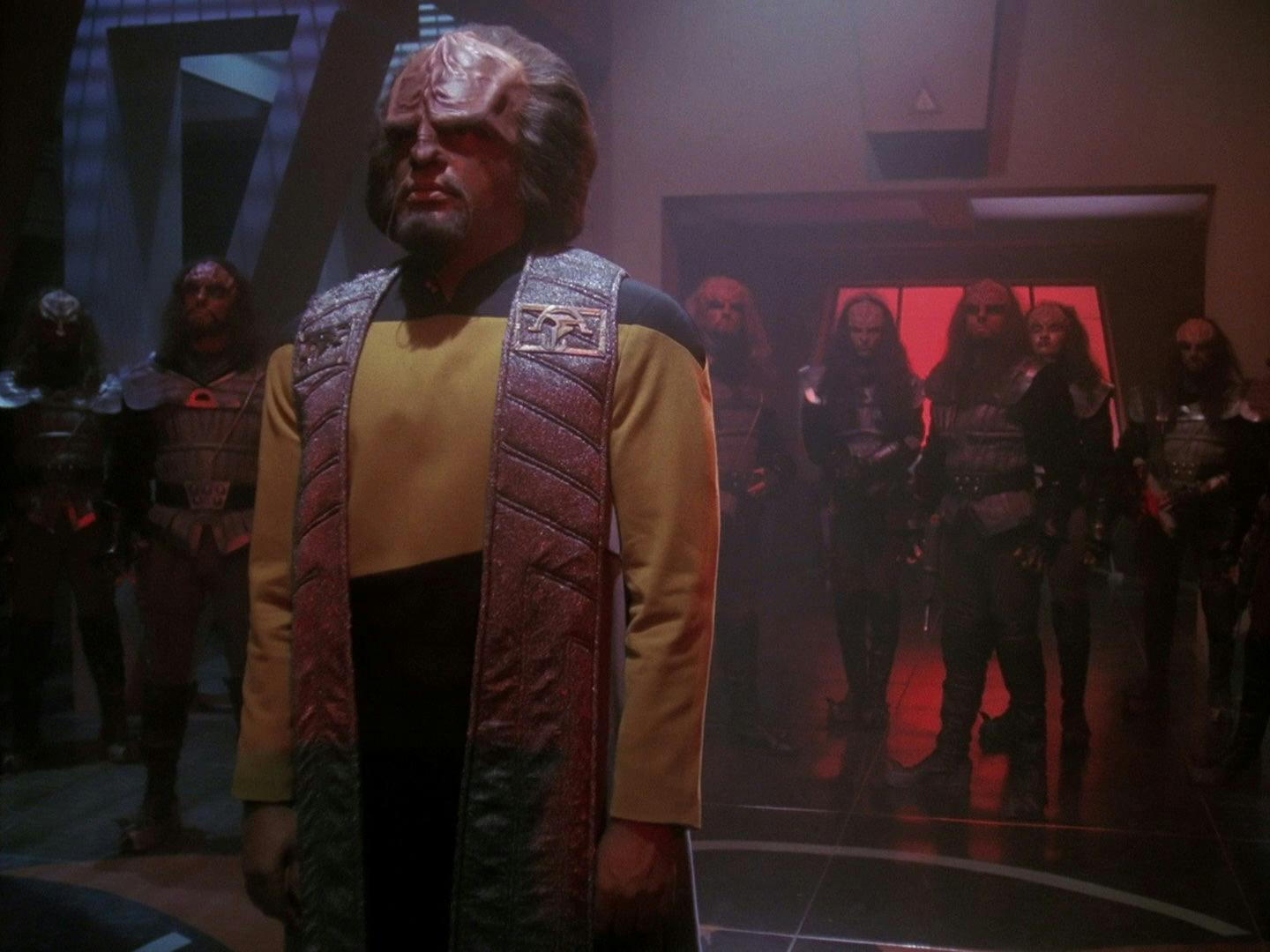
"Sins of the Father"
StarTrek.com
Though unique, each warrior's story retains striking coincidences. These outcast believers maintained special bonds with L'Rell and Martok, two commoners who ascended to prominence. Voq and L'Rell fell in love and stood as T'Kuvma's most loyal followers.
Worf gained Martok's respect and earned a place in the House of Martok. In an odd twist, Voq and Worf also found a home and familial friendships as security officers in Starfleet; although Voq's affinity for Burnham and the Discovery's crew stemmed from Ash Tyler's personality.
The Opportunists: Kol & Duras/Gowron

"The Butcher's Knife Cares Not for the Lamb's Cry"
StarTrek.com
Kol's desire for power superseded all else, including acting with honor. Seeing the Ship of the Dead's cloaking technology as a means to entice other Klingon houses to pledge their loyalty to him, Kol showed no hesitation or regret when he decided to steal the vessel from Voq.
L'Rell learned that Kol murdered many of her friends, despite the fact that they acquiesced to his command. The devious leader even intended to use Burnham's capture in the Discovery episode "Into the Forest I Go" to bring T'Kuvma's remaining followers into line under his rule.

"Reunion"
StarTrek.com
Duras displayed his own ruthless behavior by covering up his father's treachery during the Khitomer massacre, sending assassins after Kurn and Picard, sullying Worf and the House of Mogh, dishonorably poisoning Chancellor K'mpec, colluding to kill Gowron with Romulan explosives, and murdering Ambassador K'Ehleyr.
While less obvious, Gowron's affinity for control manifested in various ways. Gowron downplayed the Federation assistance he received during the Klingon Civil War in order to bolster to his legacy, perceived the Kahless clone as a threat to his position, exhibited jealousy over General Martok's victories in the Dominion War, and intentionally sent Martok's forces against impossible odds to ruin the general's favorable standing in the empire.
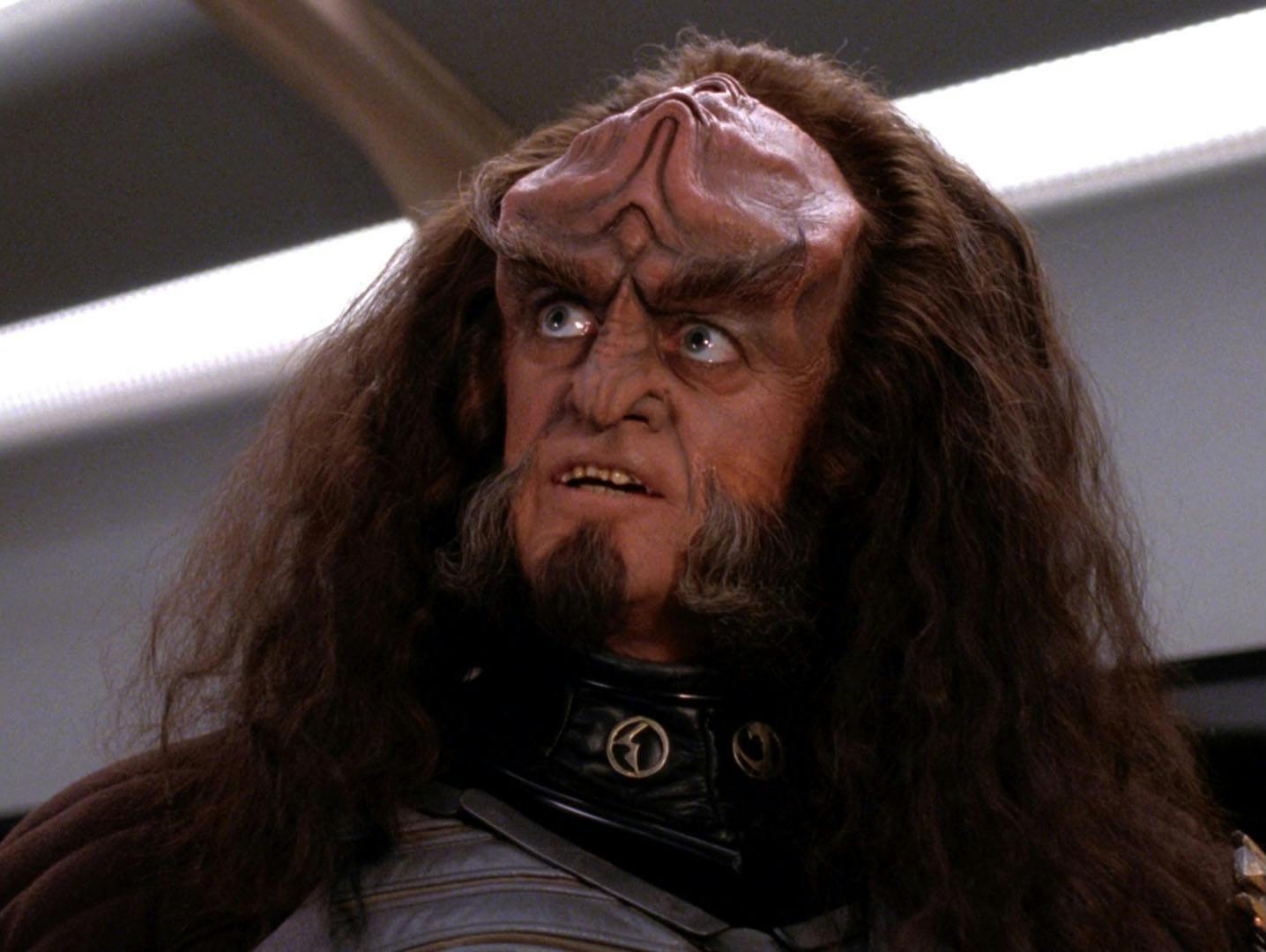
"Rightful Heir"
StarTrek.com
Kol, Duras, and Gowron valued their political standings to the point that they employed disreputable methods to retain their personal influence.
Interestingly, the outcast believers Voq and Worf stood firmly against these three leaders. Voq willingly succumbed to L'Rell's species alteration procedure in order to counter Kol's corruption. Disguised as Ash Tyler, Voq's mission to place sensors on the Ship of the Dead with Burnham ultimately led to Kol's death from the U.S.S. Discovery's barrage. Worf's role proved more direct, as he challenged Duras and Gowron on separate occasions and dealt fatal blows to the opportunists.
The Commoners: L'Rell & Martok
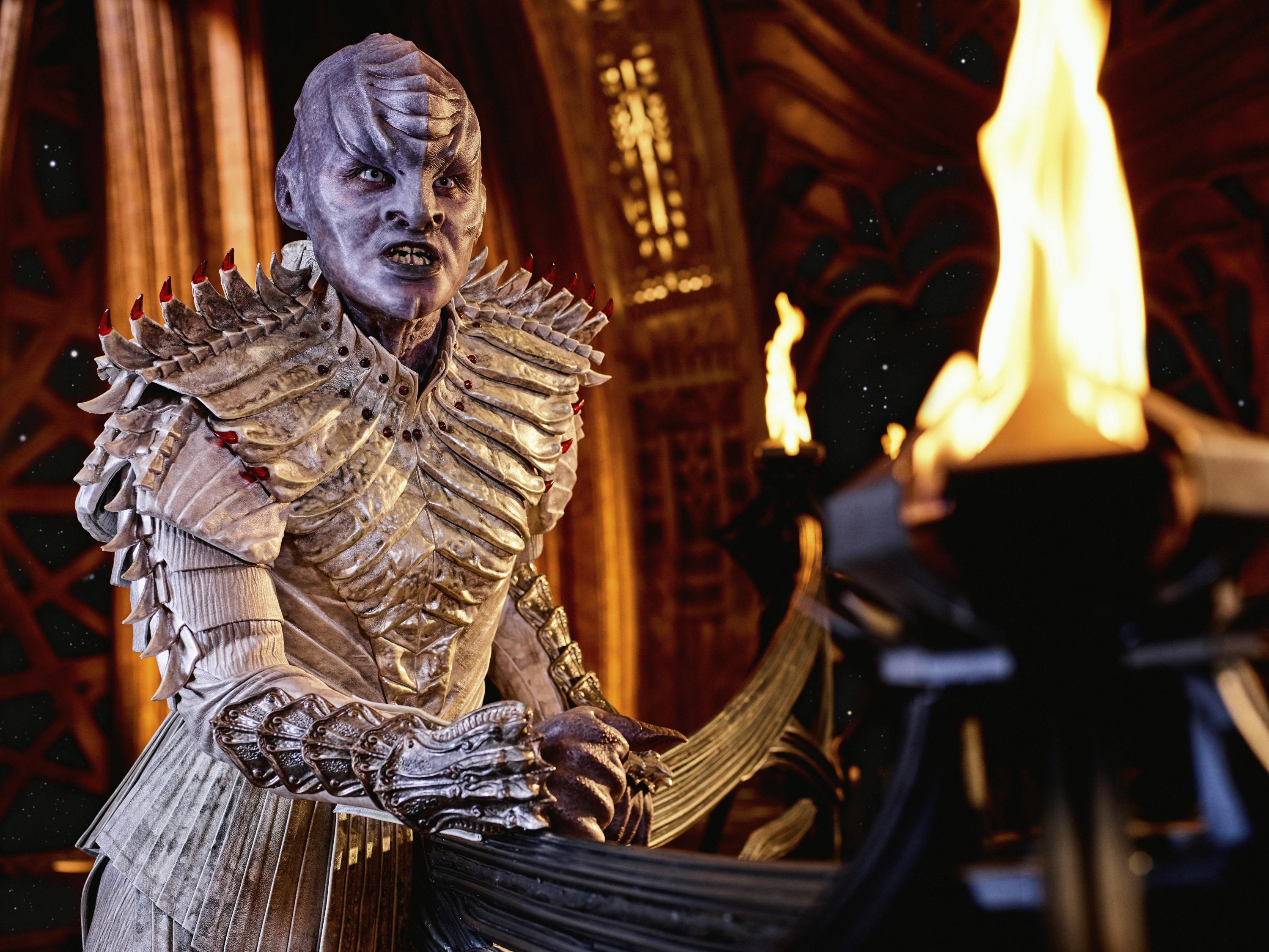
"Battle at the Binary Stars"
StarTrek.com
When confronted with the prospect of leading the Klingon Empire after Mirror Georgiou planted a bomb inside Qo'noS, L'Rell described herself as a nobody. Tyler reminded her that she never desired to rule, yet encouraged her to accept the proposal.
General Martok hesitated to challenge Gowron, believing that the High Council would never accept a commoner from the Ketha lowlands as their chancellor. Worf intervened, defeating Gowron on the House of Martok's behalf and relinquishing the powerful position to the general. With the assistance of outcast believers, L'Rell and Martok reluctantly accepted the burden to guide the empire.
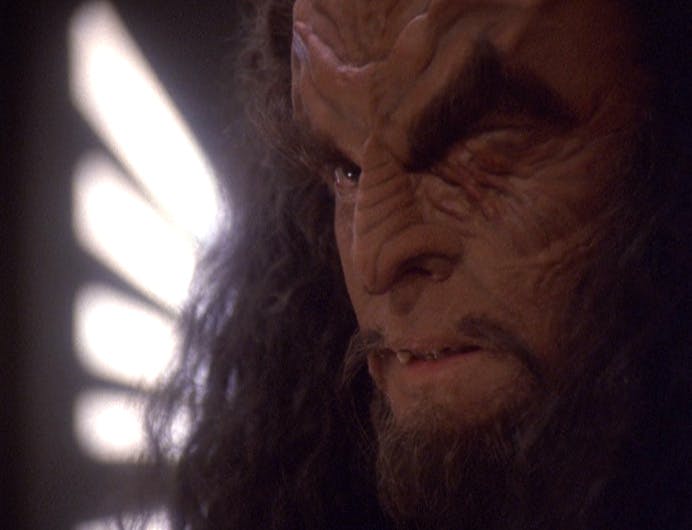
"Tacking into the Wind"
StarTrek.com
While less significant, it is interesting to note that L'Rell and Martok both bore facial scars and were at one point captured by their respective foes.
In another fascinating parallel, neither of them held any affinity for the House of Kor. Kol betrayed Voq, felt no allegiance to T'Kuvma's vision, and planned to execute L'Rell.
Meanwhile, Kor's disdain for houses without noble blood caused him to prevent a young Martok from receiving an officer's commission. Martok's resentment lasted well into the Dominion War, when an aging Kor sacrificed his life to halt Jem'Hadar ships from pursuing the general's forces. No such reconciliation occurred between L'Rell and Kol, as the two despised one another until Kol's death.
